Café
Oh, coffee, one of our favorite drinks to start the day, at least for many of us - others are used to drinking great coffee after lunch, and others drink a "bucket" of it while they work. Some prefer other variations, even iced coffee. The fact is: coffee is a part of our day.

In 1727, clandestinely, an Arabian coffee seedling made its way into Brazil, and, from 1800 onward, Brazil became one of the biggest coffee manufacturers in the world. Coffee is beloved by many because of its scent, flavor, and because it is an excellent stimulant, thanks to caffeine. It even has its own day: October 1st.
Well, get yourself some coffee and come check out our Café review!
Game Info
Café is a board game played with 1 to 4 players, ages 8 and up, by Portuguese designers José Carlos Santos (nicknamed "Rôla") and Luís Costa, so they signed off as "Rôla & Costa". It was illustrated by Marina Costa.
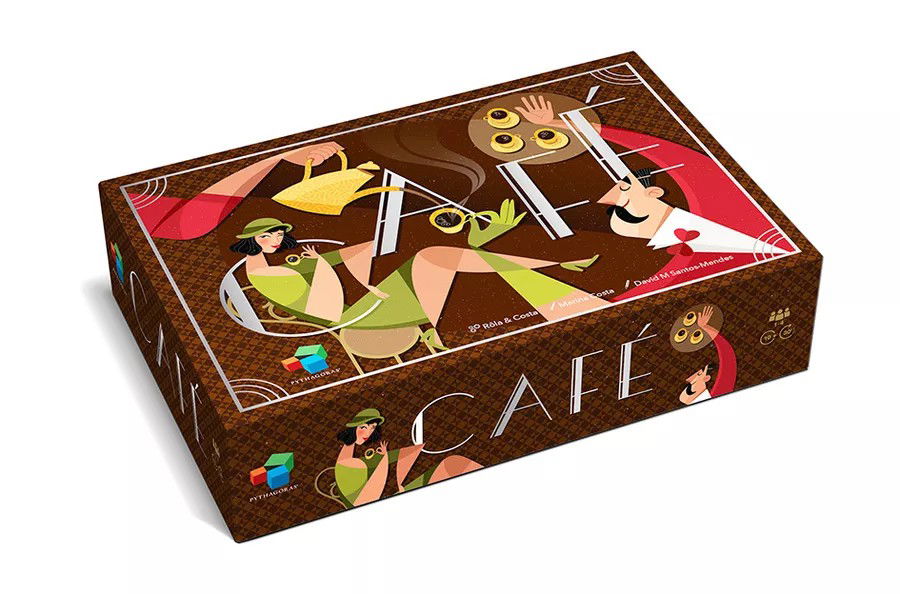
Café was released worldwide in 2020 by Pythagoras, and was released in other countries, like Brazil, in 2023, by Across the Board, which, by the way, partnered with the designers and brought 2 of their other games to Brazil as well (Pessoa and Lata). Its basic mechanics are: catch and release, action points, and card placement.
The Brazilian edition, the one I got, really surprised me, as it includes the "Café Expresso" expansion, which has new game mechanics and thus boosts its variability and replayability, besides 2 extra promo cards.
Café has won multiple prizes since it was released, namely Best Portuguese Strategy Game and Portuguese Game of the Year by 5 Seasons. In 2021, it was nominated for these same categories by Geeksd'Ouro.
Let's check out how good is Café!
The Game
In Café, we're coffee manufacturers in different countries. We have to take care of its entire cycle, from production to delivery, and deliver our product to the most varied Portuguese coffee shops. The goal is to gain points for catering to these clients and also keep our warehouses always full of coffee.
Early in the game, we get a Company Card indicating our nationality, our action point table, and the warehouse in which we'll stock our coffee. Each player also gets one cube (seed) of each of the 4 coffees in the game.
Furthermore, we get our Initial Card, which has 3 coffee bean production squares, one drying square, one roasting square, and one coffee cup square, which represents our 1 action point for that turn. This makes 6 squares for each card.
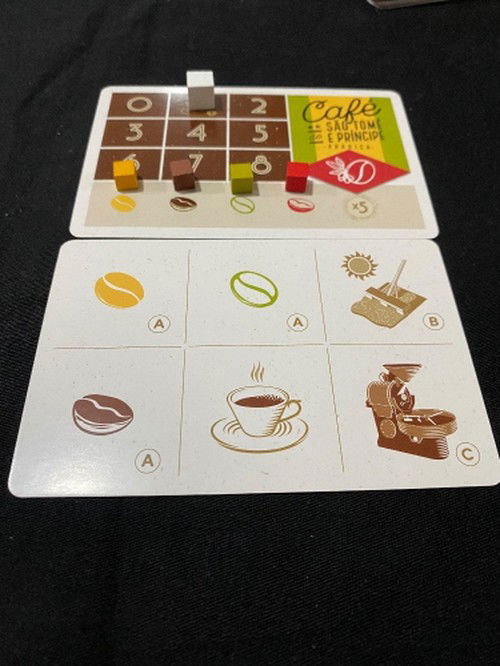
Each action point table has different types of coffee each player will need to plant, according to each player's country. This is quite nice and strategic, as no one will have to plant the same type of coffee when they start out. You'll need to pay attention to your strategy straight away, as each client wants a different coffee as well.
Each turn is quite simple: the first player turns 3 Plan Cards face up, and the player to their left will be the first to pick a card, which can cost 0 or cost a type of coffee seed in your warehouse.
If anyone gets a Plan Card with a coffee cup (it's an extra action point they'll have to play on their turn), they have to use any of the seeds (cubes) in their warehouse to keep the card.
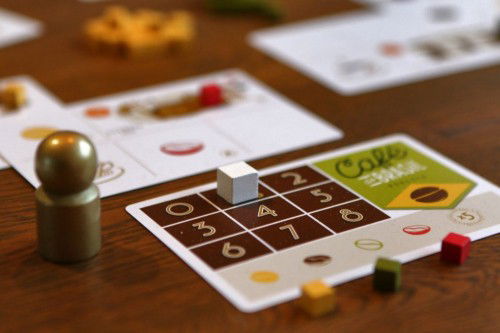
Any other cards that don't have the coffee cup symbol cost nothing at all (but these cards aren't an action point either). If the player already has 2
ships visible in their business area, they also don't pay for a Plan Card with a coffee cup.
After a player picks their Plan Card out of the 3 cards turned face up, you have to refill the board with 3 different cards for the next player to pick a Plan Card. This goes on until the first player picks their card. The Plan Cards no one picked are discarded.
Then, the game is on. In Café, you have to be careful when you set up your Plan Cards and Initial Cards in your business area, as they need to follow certain rules. Plan Cards must cover at least 2 and at most 4 squares of your business area (which in the first turn is just your Initial Card). Keep in mind that every card, even Initial Cards, has, on their own, a total of 6 squares. It pains me to say that, but it is strategic and necessary, after all, it's one of the game's rules.
To understand how that will dictate our entire game, we need to understand some other concepts of Café. Each square on Initial Cards and Plan Cards has letters, and each letter represents something:
When you put a Plan Card on top of your already existing cards, obviously, you'll cover and lose at least 2 squares (out of the 6). It's part of the game, and it's precisely what makes it stand out from other games.
If you manage to put, side by side, actions with the same letter, that is, A actions next to other A actions, when you plant (the action associated with the letter A), you'll plant in all nearby squares with "A". You can also do this with B and C, so, whoever sets up their cards better gets the most out of their actions. That's what Café is all about!
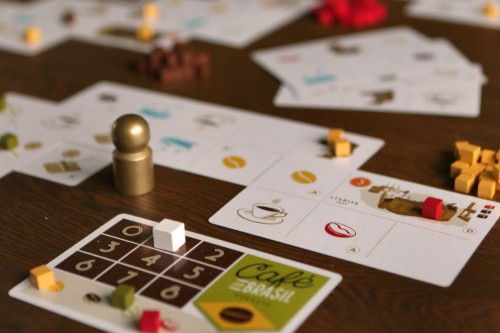
If you don't do that, that is, if you start drying beans (the letter B) and all your B squares are too far apart, you'll need to dry multiple times, one for each letter, so it will be too expensive. That's why card placement is so important in Café.
The only exception to this rule is delivery (the letter D) because you can deliver either to your coffee shops or your warehouse, that is, too entirely different places. That's why you don't need to put D squares too close. So, when you deliver your coffee (the letter D), you'll just deliver everything you've already roasted (the letter C).
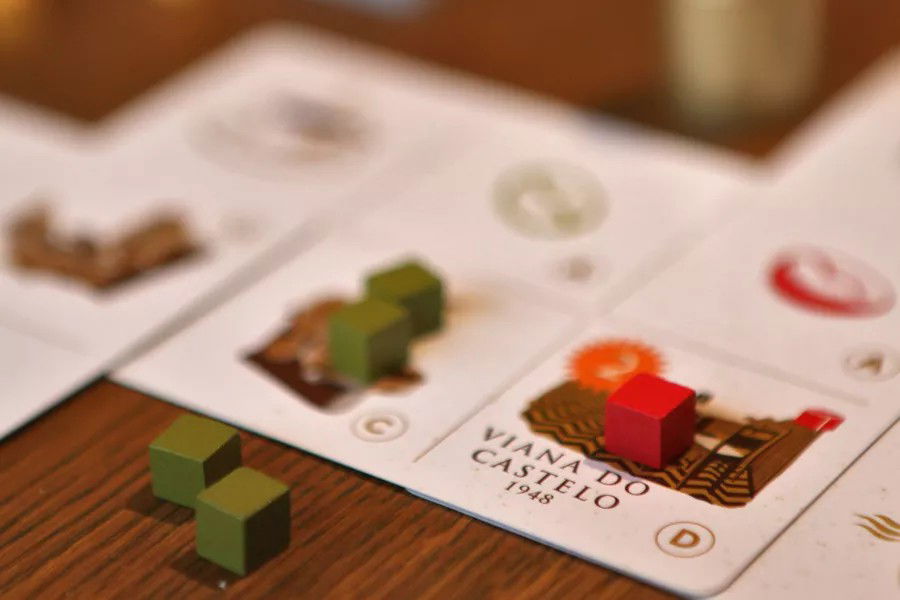
Now that you know all this critical info, after you place your Plan Card in the best spot possible, it's time for the first player to do their actions. They'll have as many actions as they have coffee cup Plan Cards in front of them. Now it's time to put your brain to work and play your actions in the most logical order possible to make your company work as efficiently as it can, and meet every coffee delivery you get.
Obviously, when you plant (letter A), you'll plant in every A square nearby. As for drying (letter B), or roasting (letter C), here's a great tip: you can use all coffee seeds (of the same type/color) planted in same-letter squares at once. That is, if you are going to dry (letter B) something, just bring to that square all the same type of coffee that is planted in A squares, regardless of where they actually are.
The same goes for when you roast (letter C) something. Just bring all the same type of coffee you dried in B squares, regardless of where they are - whether they're nearby or not.
So, do you see how easy it is to make coffee? Just follow the alphabetic order: first letter A (plant), then B (dry), then C (roast), and finish with D (deliver). It is quite straightforward!
When the first player has no more actions to play, the next player takes their turn until everyone has played. That's a turn in Café!
End of the Match
The game is over after turn 8, which is when you'll mark down your scores. Players get points like so:
The player with the most points wins! If there is a tie, the player who has more coffee roasting (letter C) wins. If there's still a tie, the player who has more coffee drying (letter B) wins. If there's still a tie, the players share the victory with a cup of coffee!
It is that simple!
Strategy Tips
In Café, you need to have a strategy for your choices every turn, that is, when you pick your Plan Cards. With them, besides your actions (with the letters), you'll also get the coffee shops' demands (which give you points when met), ships (which may discount the cost of your action points until they cost nothing at all) and different types of coffee, as you don't start with all of them. In sum, picking those Plan Cards correctly is crucial.
For instance, picking a good client (which gives you many points) that wants a coffee you don't make, is no good. In fact, the opposite is also not that great, as in, it is not that great to make something no one wants, as it will just occupy space. You have to be precise when you pick your Plan Cards.
You also have to look at what other players are playing, as they'll be looking at you too. You might just give them an excellent card, so keep an eye on that because it makes all the difference in the world.
I highly recommend you focus on coffee cup cards first, that is, actions; that's how you can do more in your turn. It's also important to place your Plan Cards as best as you can, obviously.
I don't know why, but placing Plan Cards with the letter A (and thus planting) is easier than setting up action cards with the letter B (drying) and C (roasting) - I always mess them up. Of course, it's possible, but I probably just haven't mastered it yet or just had really bad luck. Keep an eye on that too.
Follow these tips and make your coffee company prosper!
Unboxing, Rules, and Gameplay Videos
Check out this unboxing:
Learn all the rules with this video:
Watch some gameplay:
Teaching Moments
In Café, it's clear that you need a good grasp on work flow, just as much as you need spacial awareness, planning skills, and some math/logic skills as well. So it's useful for adults and children alike!
You have to consider the entire process, from planting to delivering to the coffee shops and the warehouses, so this game makes you consider the steps in coffee production long-term, that is, the entire production cycle. This encourages us to first decide what will be our first step to then "unlock" another action afterward, that is, one step at a time. This is a great concept for our daily routines, as we live in such a fast world that most of us are skipping steps all the time. Café is truly a life lesson!
Spacial awareness will be crucial to decide what to let go and what to prioritize when you put your Plan Cards down, as you'll have to give up something. The game makes you coordinate your squares, prioritize a few actions, and let other ones go, and that's why you'll need spacial awareness.
You'll also need to plan a lot when you play Café so you don't make something no one wants or, worse, forget to make something people want. Café makes us think long-term, which is great for the game and real life.
Like all great games, you'll also need some math/logic skills. You need to play your actions in a logical order and calculate, for instance, how much coffee you have to store to make sure your all coffee shops get what they need. It's also important to score more points at the end of the game.
The best teaching lessons in Café are: use your brain, and consider how your present actions affect your future!
I highly recommend Café for your collection!









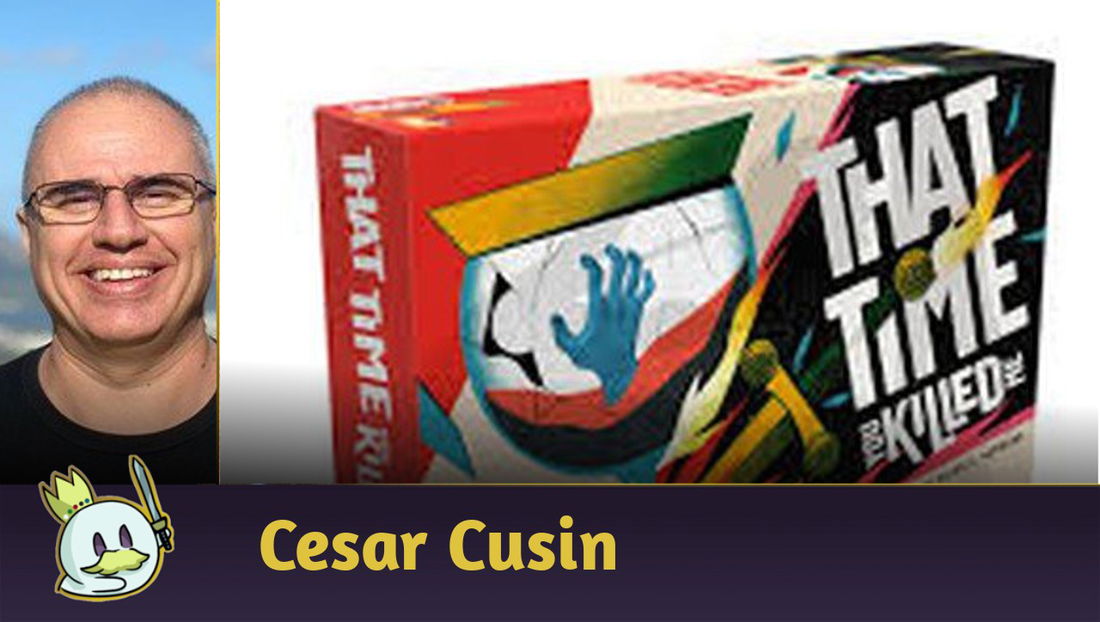
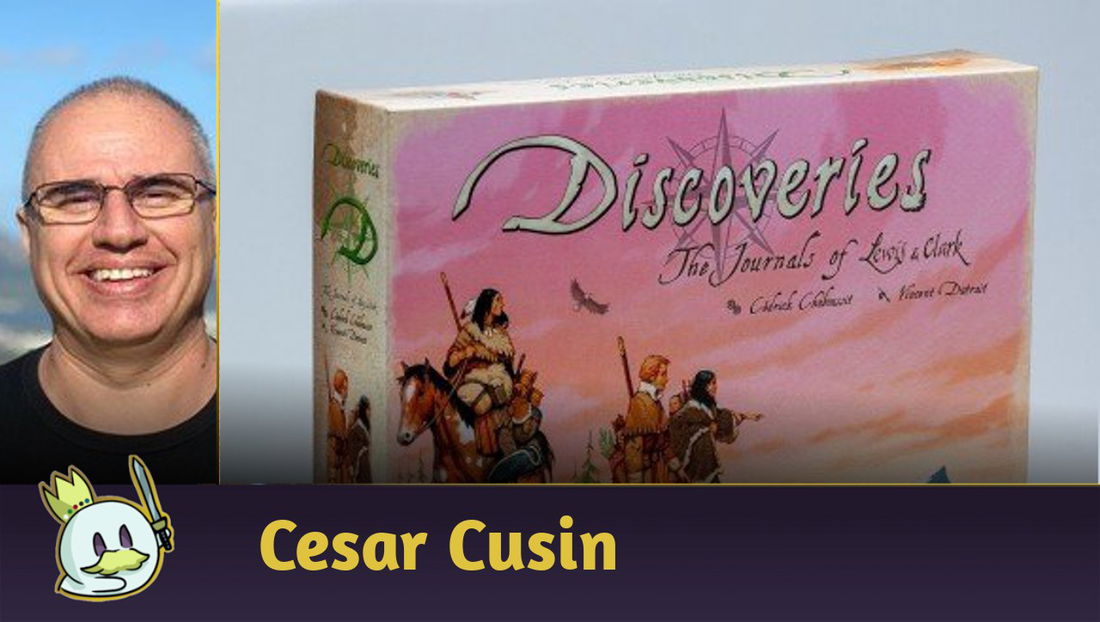



— Comments 0
, Reactions 1
Be the first to comment